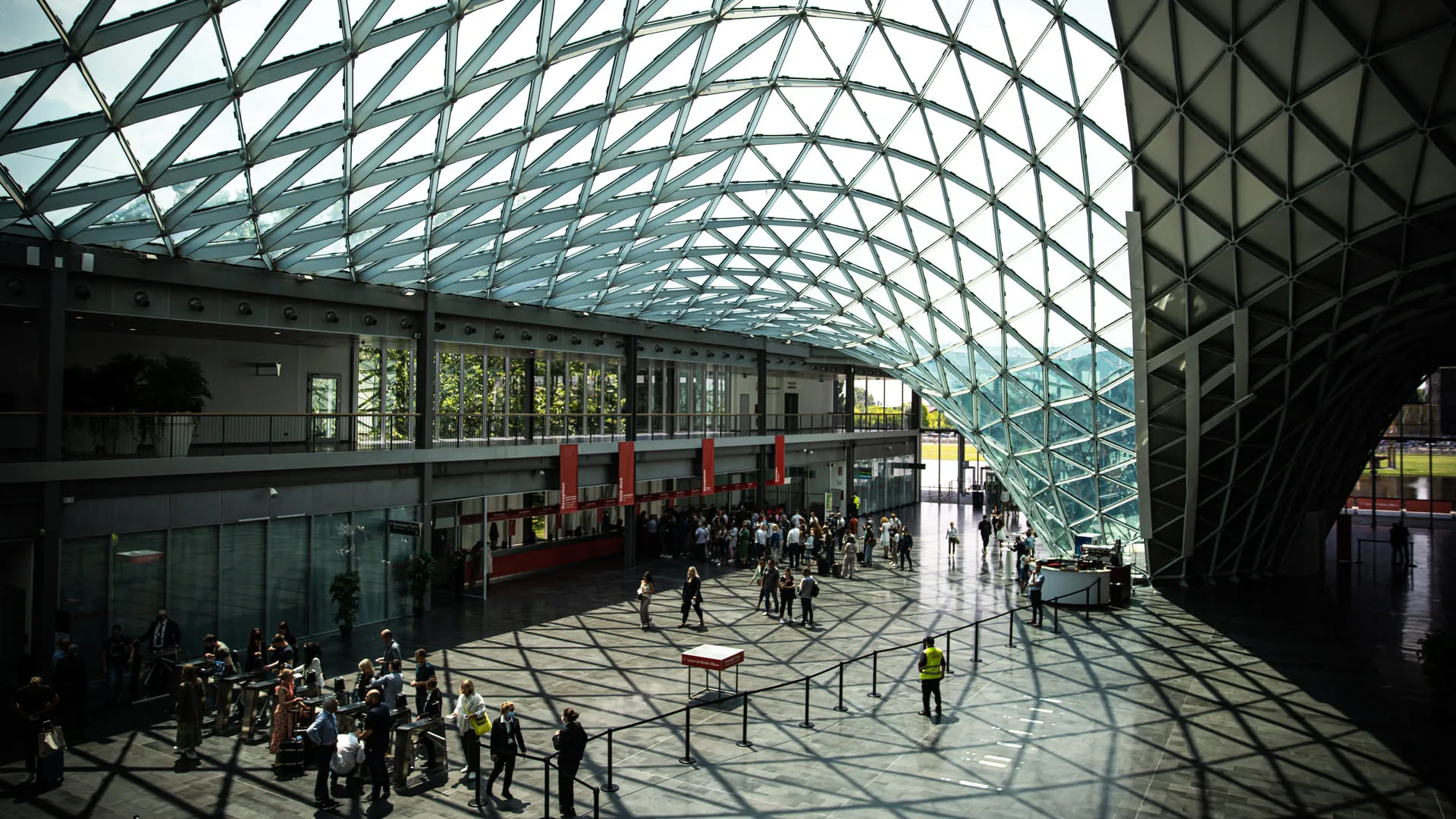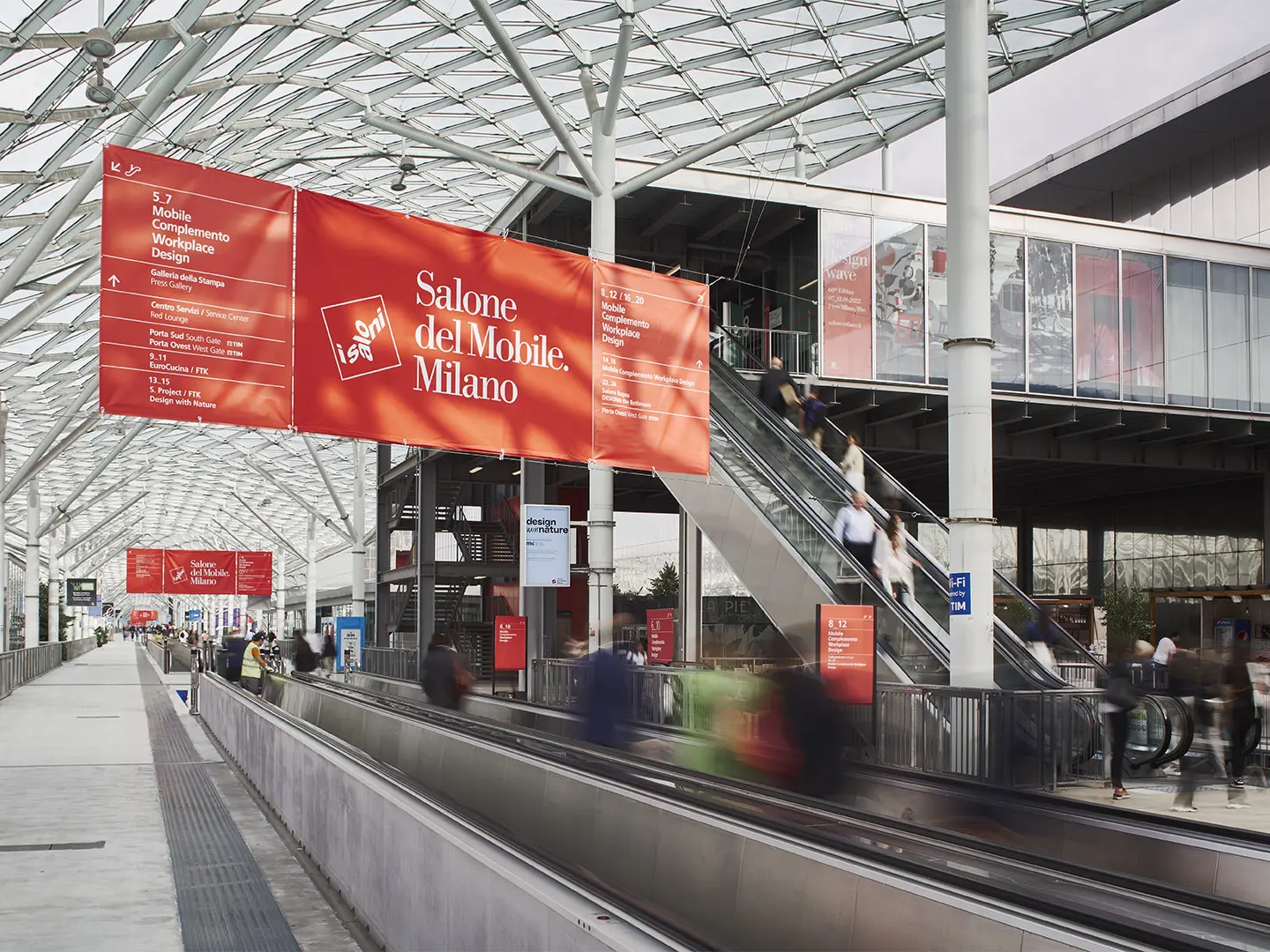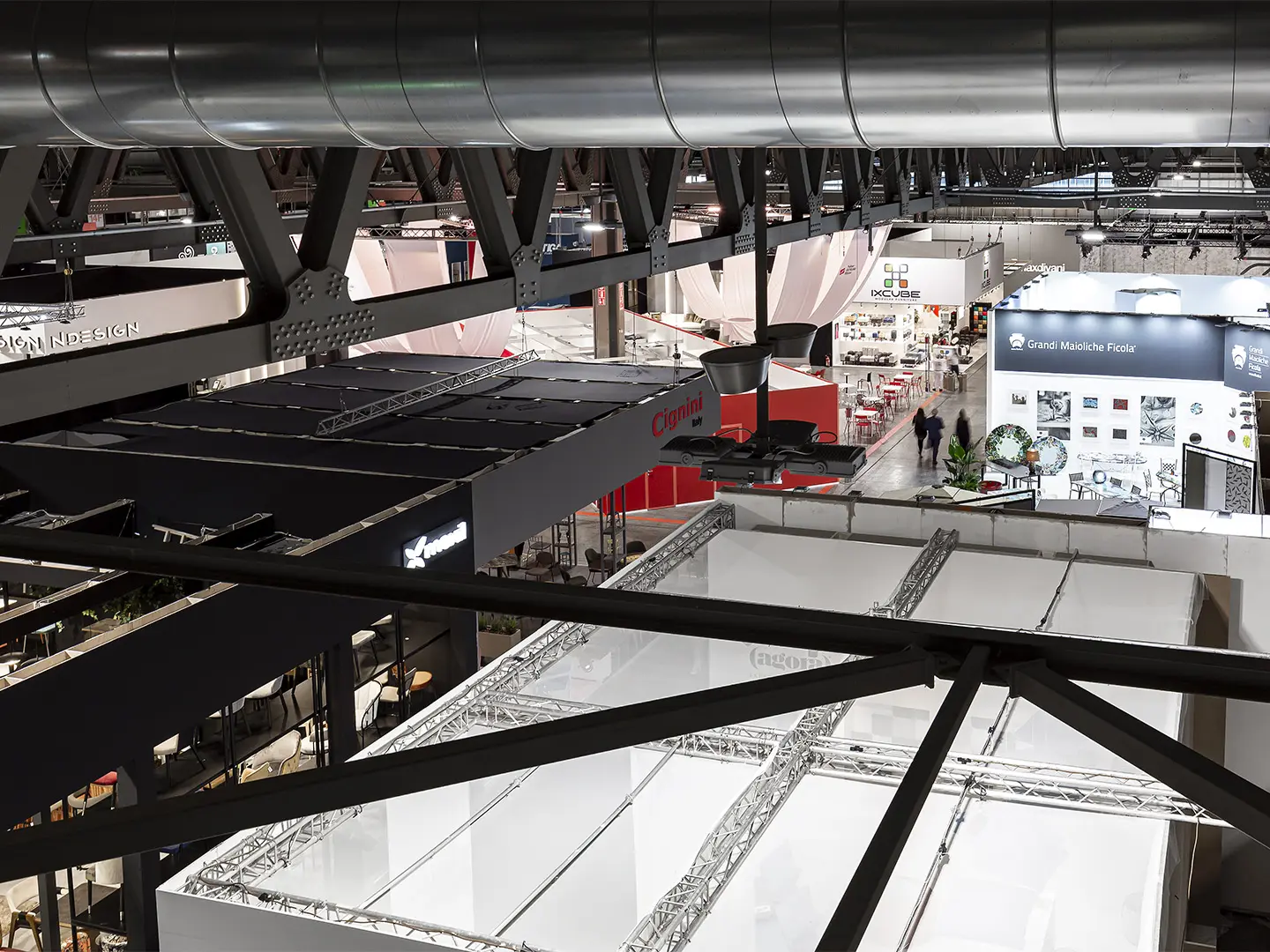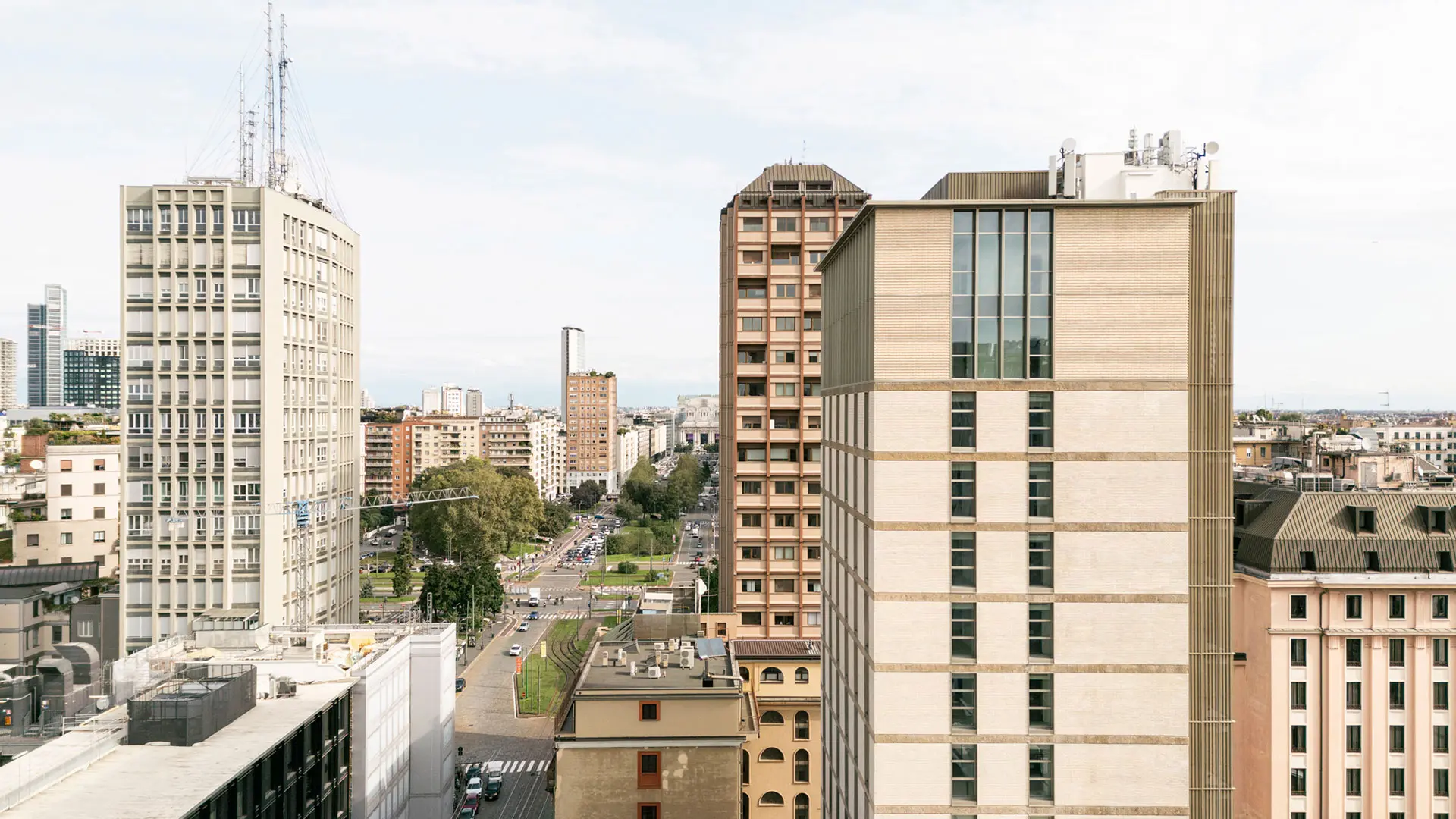In partnership with MiCodmc, a selection of establishments ripe for discovery during the 63rd edition of the Salone del Mobile.Milano, from 8th to 13th April
Taking part in trade fairs is an investment that pays off

Salone del Mobile.Milano 2022, photo Marco Mazzoni
An AEFI study demonstrates the competitive and economic advantage for Italian businesses choosing to take part in trade fairs. The sectoral industry is the fourth most powerful in the world
Taking part in trade fairs is an investment that pays off, according to a Prometeia study commissioned by AEFI (Italian Trade Fair and Exhibition Association). Prometeia provides consultancy services, technological solutions and cutting-edge research and, for the first time, has assessed the competitive advantage for businesses taking part in trade fairs between 2012 and 2019: sales saw 12.6-point growth, an additional 0.7 points of growth marginality (EBITDA) and a 0.9% ROI increase, compared with businesses that did not take part. The survey was based on a sample group of more than 25,000 exhibition companies, responsible for 13% of Italian production, compared with similar businesses that did not take part in trade fairs.
The Italian trade fair system, which holds national and international events devoted to subjects ranging from gold to engines, design and food, has always been one of the greatest allies of Made in Italy. Production generates a domestic impact of some 22.5 billion euros every year, including services, transport, hospitality and wages, equal to 0.7% of GDP. The trade fair industry is a multiplier not just of business, but also of high-spending business tourism, specialist services and jobs accounting for 203,000 workers, taking both indirect impact and allied industries into consideration. AEFI, which represents almost 75% of sectoral turnover, has 48 members, with 42 districts in which over 1,000 events a year range over a total 4.2 million square metres of exhibition area, and 8 organisers. It represents 200,000 businesses and 20.000.000 professionals from all over the world.

Salone del Mobile.Milano 2022, photo Luca Quagliato
AEFI president, Maurizio Danese, had this to say: “The numbers that emerge from the Prometeia study clearly confirm that Italy is the fourth trade fair industry in the world, and is first and foremost a natural business incubator for the Italian industrial districts, as well as a lever of high regional added value. Now, in the post-pandemic period, the system is focusing on renewal: a crucial phase for overcoming fragmentation through strategic alliances based on products, on safeguarding the regions and on the added value generated by them. This process will also include the establishment of a board with the government, geared to implementing a shared national exhibition plan.”
The trade fair system encompasses tens of thousands of Made in Italy companies capable of performing seven times better than the total Italian economy (+2% vs +0.3% the average annual growth in turnover between 2012 and 2019). The impact analysis, which took in a much larger sample group than ever before, has shown for the first time the return in investment for firms taking part in fairs, comparing the performance of companies in the various production chains. Agri-food companies taking part in trade fairs scored a higher “prize” in terms of extra growth in activity, seeing a 20.5% increase. Even sectors producing intermediate goods, such as mechanics, recorded above average benefits, up 14.4%.

Salone del Mobile.Milano 2022, photo Luca Privitera
According to the Prometeia study, the production value of Italian trade fairs stands at 1.4 billion euros, with 3,700 directly employed people, 200 international and over 220 national events organised each year, for a total of 12.6 million visitors, rising to 20 million taking local events into account (AEFI data). Despite being hard hit by the lockdowns and suffering a 63% downturn in turnover in 2020, the Italian trade fair system has an important role to play in the Italian economy, and stands in second place in Europe after Germany. The sector is directly responsible for a production value equal to 8.9 billion euros, accounting for 4.3 billion euros of added value and 96,000 employees, rising to 22.5 billion of production, 10.6 billion of added value and 203,000 employees, taking into consideration indirect impacts and allied industries. Furthermore, in Italy fairs operate with a 2.4 multiplier: each euro of added value directly generated by the trade fair system, from exhibitors to organisers and visitors, produces a further 1.4 for the national economy. When it comes to employment within the sector, the multiplier stands at 2.1, with each job directly within the system supporting another 1.1 in Italy.


 Markets
Markets








